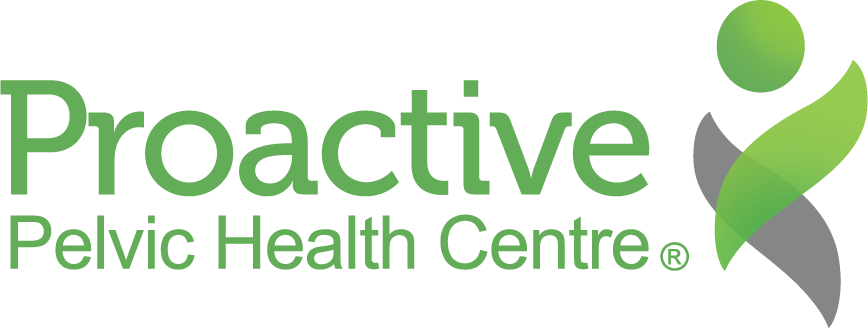Menopause
Menopause is often looked at as the “end of the road” – but we’re here to say, heck no! It is a natural life transition that individuals assigned female at birth (AFAB or as we will refer to as ‘women’ in this post) go through, and one that should be discussed, not silenced. While physical and emotional changes do occur, there are ways to address the challenges you may experience, so you can continue to thrive. The first step is empowering yourself with the facts.
What is Menopause?
Menopause is medically defined as when a woman has had at least 12 consecutive months without having a period. Typically, people enter menopause between 40 and 58 years of age, with the average being 52.
What is Peri-Menopause?
You may also have heard the term peri-menopause. Peri-menopause is the time period leading up to menopause. Peri-menopause lasts, on average, 6-8 years and often begin in one’s mid-to-late 40’s or early 50’s. During this phase, people experience fluctuations in hormone levels (primarily estrogen and progesterone), which can lead to a variety of symptoms.
Common symptoms of menopause and peri-menopause include:
Systemic symptoms (meaning in the body), such as night sweats, hot flashes, fatigue, insomnia, weight gain, mood swings, and memory issues.
Local symptoms (within the pelvis and vulvovaginal area), such as irregular menstrual cycles, vaginal dryness, decrease in muscle flexibility, changes in vulvar skin texture, burning, itching and skin irritation.
What Is The Role of The Pelvic Floor in Menopause?
During menopause and peri-menopause, estrogen and progesterone levels decrease over time. Both hormones are vital to collagen production and building muscle mass. So as levels lower, muscles in the pelvic area (and elsewhere in the body) start to thin and the surrounding collagen (which supports our muscles) weakens. This can lead to pelvic health conditions, including:
Urinary incontinence (bladder leakage)
Increased urgency or frequency of urination
Increase in urinary tract infections since the pH balance of the vagina changes as hormone levels decrease
Prolapse, which is when pelvic organs descend into the vaginal canal
Decreased estrogen levels can also lead to vaginal dryness, which is considered a hallmark symptom of menopause. Vaginal dryness can cause discomfort and irritation, as well as painful intercourse (dyspareunia). Sexual changes are, in fact, quite common. A study by the North American Menopause Society (NAMS) study found that:
58% of women avoided intimacy due to vaginal discomfort
64% of women experienced loss of libido due to vaginal discomfort
64% of women experienced pain associated with sex
30% of men & women ceased having sex altogether due to vaginal discomfort
If you’re experiencing difficulties with sex or other symptoms associated with menopause, know that there are effective treatments that can help you.
How Can Pelvic Health Physiotherapy Help Me?
Menopause is a natural life process that happens to every woman. So, why not have tools in your corner to help you embrace the changes and thrive? One such tool is Pelvic Health Physiotherapy (also called Pelvic Floor Physiotherapy). Pelvic floor physiotherapists are specially trained in developing individualized treatment plans to optimize the strength and coordination of the pelvic floor muscles. This can include:
A detailed assessment of your medical and hormonal history, as well as current symptoms (e.g., bladder habits, pelvic pain, concerns around sex)
Exercises to strengthen the pelvic floor and innermost abdominal muscles
Working on breathing and posture
Tailored treatment for those experiencing painful intercourse, such as manual therapy, deep diaphragmatic breathing and use of vaginal dilators
Recommendations for complementary therapy to address symptoms (e.g., naturopathic medicine)
Often, a number of sessions are required. Your Pelvic Health Physiotherapist will customize a plan to your unique needs and goals.
How Do We Approach Treatment For Menopause?
At Proactive Pelvic Health Centre, we are passionate about destigmatizing women’s health and pelvic health issues. We firmly believe that it’s time to debunk myths about what it means to age as a woman. By openly and honestly speaking about menopause and the changes women experience, we can collectively work to prioritize the health and wellness of women throughout their lifespan.
Our approach is compassionate, holistic and evidence-based using a combination of education and clinical care to put you on a positive course to achieving your pelvic health and wellness goals. Treatment plans are customized to your specific needs, with consistent check-ins to ensure you’re on the right path.
What Other Treatments Are Available?
Since menopause can lead to highly variable symptoms, we strongly recommend including multiple approaches to manage menopause-related issues. This can include hormone replacement therapy, vaginal estrogen, and other medications (prescribed by a physician or Naturopath). Please consult with a medical professional for more information on medications.
For vaginal dryness specifically, there are a number of highly effective non-hormonal treatments we integrate into our treatment plans. These can include:
Vulvo-Vaginal lubricants. These are fast-acting topicals that provide temporary relief from vaginal dryness and pain related to sexual activity. They come in a variety of forms and textures (water, oil or silicone based).
· Vulvo-Vaginal moisturizers. These products are longer-lasting if used regularly and helpful in reducing pain and friction, as well as helping to heal damaged tissue and maintain vaginal moisture and acidity. Examples include RepaGyn, FemmeSense Balm and Gynatrof.
Additional Resources:
Check out our YouTube videos to learn more about endometriosis and Pelvic Health Physiotherapy. Here are a few we selected:
FemmeSense Balm – Skincare for 'Down There'
Learn more about your skin and how FemmeSense Vulvar Balm can help alleviate vulvar and vaginal dryness, itching, chafing and discomfort.
Muscle and Tissue Changes Related to Menopause
Learn about the many muscle and tissue changes that occur through menopause and the importance of supportive pelvic floor muscle strength.
The Importance of Vaginal Moisturization Around Menopause
Having a regular moisturization routine is just as important for your vagina as it is for your face! Learn more about vaginal moisturization from Pelvic Health Physiotherapist Angelique Montano-Bresolin.
Did you know?
1 in 3 women
experience urinary incontinence
Over 30% of females
perform kegal (pelvic floor) exercises incorrectly
30-50% of females
have minor pelvic organ prolapse after a vaginal delivery
All women in France are given access to pelvic floor physiotherapy after having a baby.




